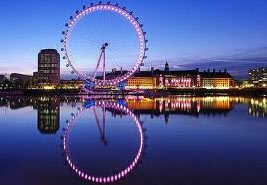UK set to ease tough student visa norms

London: British Prime Minister David Cameron looks set to roll back tough visa restrictions imposed by his government on foreign students - the largest numbers coming from China and India - following reports that the United Kingdom's £8 billion annual income from this source could be endangered as a result of a decline in applications for the academic year commencing next autumn.
The PM's office is said to have concluded that there is a genuine risk of students from outside the European Union, particularly from India, turning their backs on Britain if they confront too many immigration barriers. Britain's Sunday Times quoted a source in Cameron's office as saying, "The Prime Minister understands these arguments and is definitely considering a change of policy."
India has been lobbying with UK on the issue at every opportunity, including at meetings of cabinet ministers, and the high commission is playing an active part in this respect. Within the British cabinet, secretary of state for business, innovation & skills, Vince Cable, too, has championed this cause.
Cable, a Liberal Democrat, and the Conservative party universities minister under him, David Willets, have argued that including foreign students in immigration figures is an error, especially since a vast majority of them sooner or later leave Britain after completing their courses.
The Conservatives, now in office with the Liberal Democrats, made a manifesto promise before the 2010 general election of reducing net migration to below 100,000 per year.
One in 10 undergraduate or postgraduate students in the UK comes from outside the country, with China followed by India providing the main inflow. With Britain scrapping post-study visas, those outside the EU who can afford to pay full fee for university education in the UK have been deterred from doing so.
Germany, a low-cost, high-quality higher studies destination is also opening up for Indians, thereby threatening to pose serious competition to British institutions.
Interestingly, in an example of cross party unity, Nadhim Zahawi, a Conservative MP, and Paul Blomfield, a Labour MP, warned of a "growing perception abroad that in terms of higher education Britain is not open for business".
Cameron's likely volte face comes at a time when his authority as leader of the Conservatives is being challenged by some of his party's grandees and 50 to 100 odd MPs over his plans to reform the second chamber of parliament, the House of Lords. Nine former Tory cabinet ministers have written to their party MPs urging them to revolt against Cameron on the proposed change.
The House of Commons, the directly elected body, is slated to vote on the surcharged issue on Tuesday. The Conservative rebel MPs see the Lords reform as a sop too far to the Lib Dems. The alteration suggests a mainly elected house, as opposed to a currently inherited or appointed membership. In respect of the latter, a number of Indian origin businessmen have in the past 20 years bought their way into peerage by becoming donors to Britain's cash-strapped parties.
A failure on Cameron's part to keep his flock together would disturb relations between the Conservatives and the Lib Dems, who consider democratisation of the Lords to be an issue of faith. It may even destabilise the ruling alliance.
source:The Times of India,9 July 2012
Posted on: 2012-07-09































